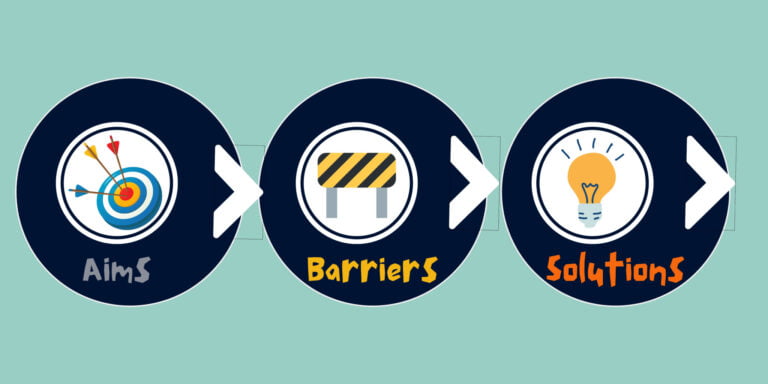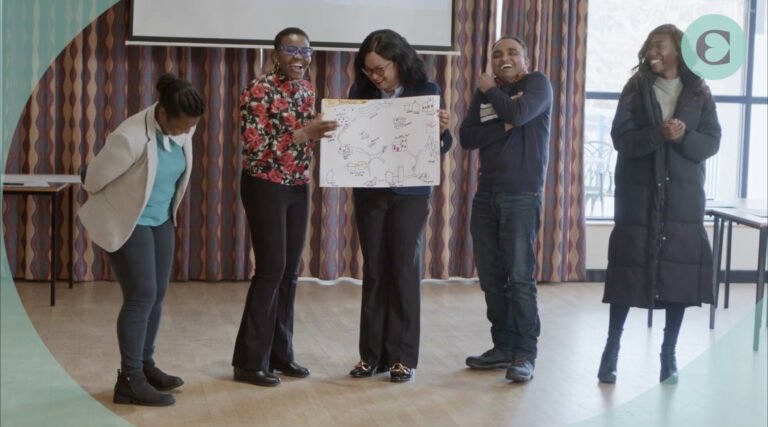During the last few months, like many people, we at Enact Solutions have been following the news intently and were devastated to learn that not only are healthcare workers more at risk from Covid-19 because of their exposure levels, but that disproportionate numbers of Black, Asian and Minority Ethnic (BAME) healthcare workers have died from Covid-19.
In April 2020, a study was published in the Health Service Journal which looked at 119 NHS staff members who had died from Covid-19.
The study found that 63% of those 119 staff were of BAME background. This is despite BAME staff members making up only 21% of NHS employees.
When we were approached by an NHS Trust, asking how best to support BAME colleagues through the Covid-19 pandemic, we set to work.
We interviewed BAME staff, to better understand the emotional complexities and write authentic drama for training. We researched the complexity of organising staff rotas, with regards to people’s specialities, additional Covid-19 precautions and staff risk levels and created the following scenario:
A black nurse has a conversation with her white supervisor. She expresses her concerns about the inequality the above study has highlighted, the increased risk to her and her family’s health and the mix of emotions she is feeling around the whole pandemic. This is juxtaposed with her love for her job, and her patients.
Delegates get to watch a difficult conversation, which has extremely high stakes and strong emotions involved. The nurse and her supervisor don’t have opposing views, but they do have different roles. Whilst staff safety is a major priority for both, the staff nurse supervisor also has to fulfil her role of creating and implementing staff rotas, so patients are properly cared for. This planning is a logistical nightmare at the best of times, let alone during a pandemic. The nurse is equally passionate about her patients being properly cared for, but needs to discuss the risk levels to her and her family and the subsequent emotion she is feeling, with her supervisor.
Through the scene, delegates learn that people often go into ‘solution mode’, ie trying to fix a problem quickly, when having difficult conversations. Whilst this is an understandable response – especially in the healthcare sector (as it’s in people’s nature to care and make things better), this response can inadvertently make some situations worse.
We find that delegates are often desperate to know what the right thing to say or do is, (again, not a bad thing), but what happens when there isn’t an easy solution? Often it’s about learning how to communicate so that people are listened to, understood, supported and valued. It’s about building strong foundations, so that dialogue can remain open in the future, so trust can be built, more conversations can happen, collaboration can begin and people can work together better.
Human beings are social creatures at the end of the day and it’s imperative that we be able to communicate well, especially in times of change and conflict. Good communication makes for happier, healthier individuals and increased productivity at work.
We’ve had a significantly increased demand for our ‘Productive Conversations in Challenging Times’ workshop at Enact Solutions of late and no wonder… Organisations recognise these are unprecedented times and want their staff to be able to communicate potentially difficult conversations as productively as possible.
I’ll finish with a thought, which though cliche is apt: “A problem shared is a problem halved”.
In this we realise that in order to share a problem, we must first be able to communicate it.
Happy conversing,
Jemma Houghton
This is the third and final in a series of blog posts about Productive Conversations written by Jemma Houghton, one of our Associates at Enact Solutions. She works in a range of areas including research, writing, filming and workshop consultancy. You can read Jemma’s first blog on this topic, Let’s talk about work and the new normal, and her second blog Let’s talk about learning through practice on our site. If you’re interested you can find out more about Enact Solutions’ Products and have a look at Enact Solutions’ Events on our website.




